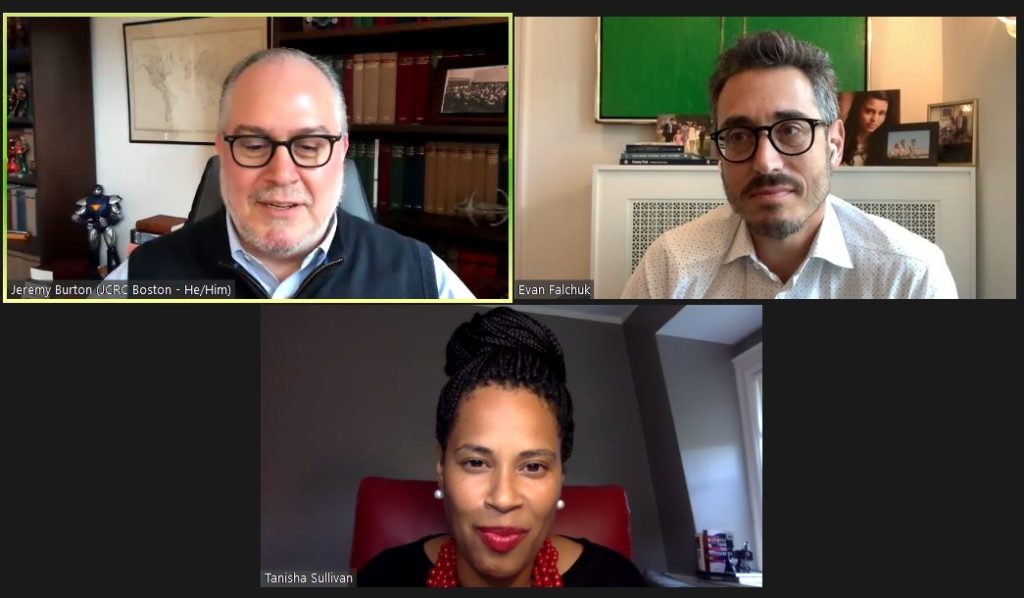The very best webinars – a medium which is claiming more of our attention these days – illuminate and inform their audiences on the issues of the day. That’s certainly what we at JCRC aspired to achieve this past Wednesday afternoon. So we were delighted that along with our audience being educated on a hot topic, they were also exposed to content that was genuinely inspiring and with broader significance than our planned program.
What am I talking about? As part of our ongoing effort in support of Yes on 2, the campaign to adopt Ranked Choice Voting (RCV) in Massachusetts come November, we convened an explanatory discussion with two of the leaders of the campaign, Evan Falchuk, campaign chair, and Tanisha M. Sullivan, honorary co-chair and President of the NAACP Boston (full disclosure, I am a member of the Yes on 2 campaign advisory board).
For forty-five minutes, they talked about their passion for strengthening our democratic processes (a passion that JCRC shares deeply), described how Ranked Choice Voting works, and addressed audience questions – including those about the critiques of RCV. They, and we, sought to illuminate and educate.
Then, there was a moment. Questions emerged about whether RCV was too complicated for voters. Tanisha took this on directly, saying:
…“The data is clear on Ranked Choice Voting and how simple it is, how it increases inclusion, how it can help to increase representation. The data is clear. But what you describe Jeremy is about emotion, how people feel, right? And you’re right. I think that when it comes to change, it can be incredibly hard. Especially in this instance when we are talking about changing a system, a way of doing things we have been doing for literally hundreds of years. I get that and I don’t want to give short shrift to that fear.
But what I do want to do is encourage folks to lean into the discomfort and not allow the fear to hold us back from progress, okay? When it comes to issues of social justice and civils rights (and I absolutely see this aligned with civil rights issues), civil rights advancement in this country, our history shows us that we have often had that fear of change. What’s that going to mean?
But our history has also shown us that when we don’t allow the fear to hold us back and we lean into the discomfort and we trust and we believe that in creating greater opportunity that our community will be stronger, that we actually are. So the fear is okay. What I am hopeful of is that the people don’t again allow the fear to hold us back and I encourage people to learn into the discomfort and make a decision to help move us forward.”
It’s that message, about overcoming fear and leaning into discomfort, that has a broader, inspiring significance in this current moment; across so many issues and challenges that we’re facing as a society.
I invite you to watch the full video of our program to learn more about Ranked Choice Voting, and to check out the full remarks from Tanisha (at minute 46). I also invite you to sign up for our continuing series of educational programs, including our next session on October 13th with Integrity First for America, the group that is fighting white supremacy and antisemitism by suing the Proud Boys and others responsible for the 2017 Charlottesville violence.
I’m coming away from this week with a renewed commitment to lean into the discomfort, and I’m embracing Tanisha’s hopefulness about our ability to move forward. Hope is a blessing and I invite you to join us in building more of it.
Shabbat Shalom and Chag Sukkot Sameach,
Jeremy


